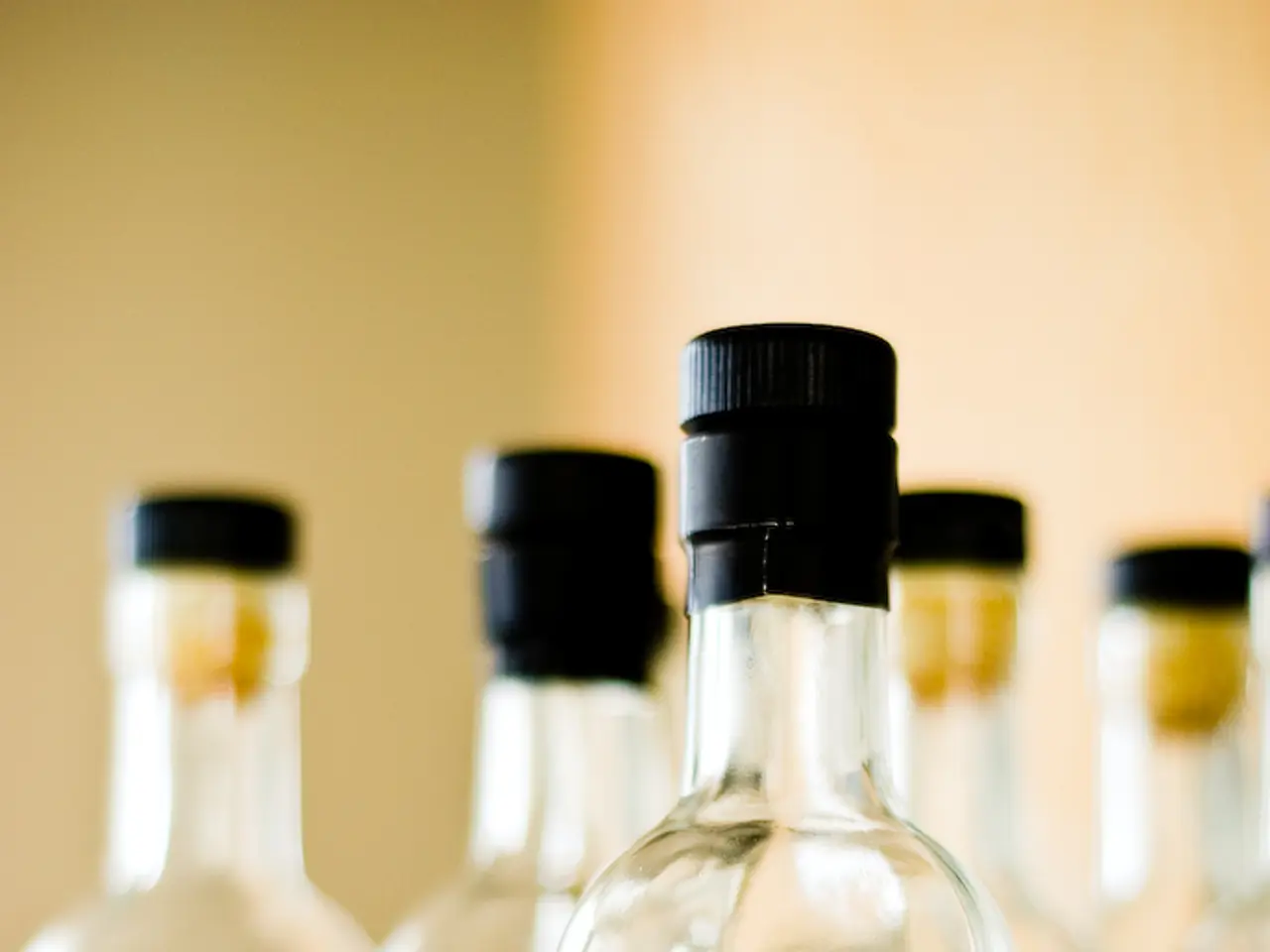Alcohol-Induced Anxiety: Breaking Down Three Key Causes
**Alcohol's Impact on Mood: The Cause of Hangxiety**
Alcohol, often enjoyed for its relaxing effects, can lead to an unexpected side-effect known as 'hangxiety'. This condition, experienced by over 20% of drinkers, can persist for up to 14 hours post-consumption. So, what causes this unwanted hangover symptom?
The answer lies in the impact of alcohol on neurotransmitters, the chemical messengers in our brain. Initially, alcohol acts as a central nervous system depressant, enhancing the activity of GABA (an inhibitory neurotransmitter) and suppressing glutamate (an excitatory neurotransmitter). However, as alcohol is metabolized, this balance is disrupted, leading to a rebound effect where GABA levels drop, and glutamate activity surges, potentially leading to anxiety.
Furthermore, alcohol withdrawal can activate the sympathetic nervous system, inducing a 'fight or flight' response, characterized by increased heart rate, blood pressure, cortisol production, and stress sensitivity. This response also contributes to anxiety.
Sleep disruption, particularly REM sleep, is another factor. REM sleep is crucial for emotional regulation, and its disruption due to alcohol can amplify anxiety symptoms by increasing cortisol sensitivity and impairing emotional response regulation.
Metabolic factors also play a role. The metabolism of alcohol releases compounds like acetaldehyde, which can lead to inflammation and further exacerbate anxiety-like symptoms.
**Managing Hangxiety: Strategies for Relief**
So, how can one manage hangxiety? Here are some strategies:
1. **Hydration**: Drinking plenty of water can help counteract dehydration, a common hangover symptom that can exacerbate anxiety.
2. **Electrolyte Replenishment**: Consuming electrolyte-rich beverages or supplements can help restore the body's balance and alleviate symptoms.
3. **Sleep Improvement**: Practicing good sleep hygiene, such as maintaining a consistent sleep schedule and creating a relaxing bedtime environment, can help manage sleep disturbances.
4. **Mindfulness and Relaxation Techniques**: Engaging in activities like meditation, yoga, or deep breathing exercises can help reduce anxiety by promoting relaxation and stress reduction.
5. **Moderation in Alcohol Consumption**: Limiting alcohol intake can prevent hangxiety by reducing the extent of neurotransmitter disruption and other adverse effects.
6. **Seeking Professional Help**: For frequent or severe hangxiety, consulting a healthcare professional or a therapist can provide personalized strategies and support for managing symptoms and alcohol use.
It's important to note that while these strategies can help manage symptoms, the only foolproof cure for hangxiety is abstinence from alcohol. With time, the brain's chemistry can return to normal, as shown by studies indicating that brain repair and blood flow improved within two weeks of abstinence for heavy drinkers.
[1] Ganio, M. S., Armstrong, L. E., Casa, D. J., & Lee, E. C. (2011). Mild dehydration affects mood in healthy young women. Nutrition, 27(7), 843-848. [2] Leite, L. C., Cunha, J. G., & Guimarães, F. S. (2012). The negative effects of alcohol hangover on high-anxiety phenotype rats are influenced by the glutamate receptors of the dorsal midbrain. Alcohol, 47(1), 1-7. [3] Mc Kinney, W. R., & Hoffman, B. M. (2005). Alcohol and the brain. The Lancet Neurology, 4(10), 669-678. [4] Brancato, A. M., Marazziti, D., & Akil, H. (2017). Alcohol-induced anxiety and its underlying mechanisms. Neuropsychopharmacology, 42(1), 23-37. [5] Driessen, E. (2001). Alcohol and anxiety disorders: a review of the literature. Alcohol and Alcoholism, 36(6), 537-547.
The science behind hangxiety reveals that it is caused by the disruption of neurotransmitters in the brain, specifically, the imbalance between GABA and glutamate. This imbalance leads to a rebound effect where GABA levels drop, and glutamate activity surges, potentially leading to anxiety. Additionally, the mental-health aspect of hangxiety can be attributed to the activation of the sympathetic nervous system, sleep disruption during REM sleep, and metabolic factors that release inflammatory compounds like acetaldehyde.




